Engineering Pro Guides is your guide to passing the Mechanical & Electrical PE and FE Exams
Engineering Pro Guides provides mechanical and electrical PE and FE exam technical study guides, practice exams and much more. Contact Justin for more information.
Email: contact@engproguides.com
POWER PE EXAM
Reference Guide
Complete List of References
for the Power P.E. Exam
Complete List of the Must Have References for the Power PE Exam
Please see the below link to the google spreadsheet. You can also read below about a majority of the different references. If you have any suggestions or questions on the list, please email Justin at contact@engproguides.com
Link: Engineering Pro Guides Google Spreadsheet of the Complete List of References for the PE Exam
For the Thrifty Engineer
You do not need to get new books, nor do you need to get the latest version of the books below. Please check this link for how to get these books for cheap. The only books that you need a specific version of are the codebooks, but most of these can be accessed for free.
Link: Gathering your Resources for the Thrifty Engineer
Engineering Pro Guides Materials
The complete and proven study method uses the (3) Engineering Pro Guides prodcuts. The first product is the technical study guide which is used to teach the key concepts and skills necessary to pass the PE exam. The second product is the full exam which tests your understanding of each topic with an 80 question that is designed to be representative of the actual exam through a four step method. The full exam will also test some skills and concepts that are not covered in the technical study guide. Lastly, the references exam will take you through the most important parts of the necessary reference books. The full exam and technical study guide is meant to cover 75% of the PE exam and the references exam should cover the last 25%.
Topics Covered: ALL
Link: EngProGuide's Power Textbook
Link: EngProGuide's Power Full Exam
Link: EngProGuide's Power References Exam
Link: EngProGuide's Power Final Exam
National Fire Protection Association (NFPA®) Codes
All NFPA® codes can be accessed online for free. See "How to Access NFPA Codes for Free" for more information. With the conversion of the Power PE Exam to CBT, the free online version of the NFPA® is sufficient for majority of the NFPA® codes listed below, with the exception of NFPA 70, also known as the National Electrical Code (NEC®). Majority of the code questions will use this reference. Although you can get by with the free version, for study purposes it is recommended that you get the PDF version, which is easier to navigate than the free version and allows you to practice using the search function. See the article above for the various NEC® purchase options and the difference between the Codebook and the Handbook version.
Topics Covered: Codes & Standards
Link: NFPA® Code Recommendations
2017 National Electric Safety Code® (NESC®)
There are two main products published by the NESC (also known as ANSI Standard C2) and they include the actual code and a handbook that provides a walkthrough on how to apply the NESC in practice. Although the handbook is more descriptive and provides figures and diagrams to better explain the code, the actual code is more useful for electric utility engineers. For the exam, you need the code and you should have a general idea of what is in this code and when it is applied. An electronic version is available on the IEEE® website, but since this code is not so heavily used, whatever is the cheapest version is sufficient. A link is provided below for your use to provide more background information on the code.
Topics Covered: Codes & Standards
Link: 2017 National Electrical Safety Code (NESC)
Electrical Machines, Drives and Power Systems
(Not needed anymore, with the switch to CBT)
This book covers generators, motors and transformers. It also provides more information on three phase circuits, power and very good information on equivalent circuits for the previously mentioned equipment. Finally the book also covers Devices and Power Electronics since these items are used heavily in drives and controls for machines. Now that the exam has switched to computer based testing and you will be unable to bring in this book, it does not make sense to purchase this book. You should focus on learning the key concepts and skills presented in the Engineering Pro Guides textbook.
Topics Covered: Rotating Machines, Devices and Power Electronic Circuits and Electromagnetic Devices
Link: Electrical Machines, Drives and Power Systems (6th Edition)
Power System Analysis
(Not needed anymore, with the switch to CBT)
This book is similar to the previous book in that it covers some transformers and machines, but not in as much detail as the previous book. This book covers the various types of transmission lines and also includes protection topics like symmetrical and unsymmetrical faults. Finally, the book covers power flow which is under the topic of Power System Performance. Now that the exam has switched to computer based testing and you will be unable to bring in this book, it does not make sense to purchase this book. You should focus on learning the key concepts and skills presented in the Engineering Pro Guides textbook.
Topics Covered: Transmission & Distribution, Protection and Power System Performance
Link: Power System Analysis
Online Articles
If you have all the above references, then you should have all the information required to complete all the topics except for Measurement and Instrumentation and Special Applications. In order to get references for these last two topics, you need the following online articles and IEEE books, which is covered in the next section. The NCEES Power Reference Handbook has a lot of pages dedicated to General Engineering. However, you should go to the original source of those materials, in order to gain more background knowledge on what is presented in the handbook. These links provide that background.